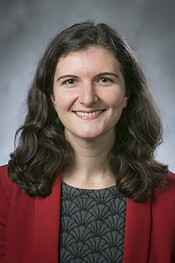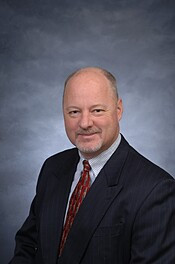This webinar is part of a series organized by CHE and the Boston University Superfund Research Program (BUSRP). Learn more about the CHE-BUSRP Partnership.
When catastrophic storms bring hurricane-force winds, torrential rains, and flooding to your community, will you and your civic leaders know what to do during the storm to protect your families from toxic exposures from air, water, and soil? How will you prevent contact with health hazards such as E. coli, lead, and arsenic that floodwaters may bring into homes and businesses? What forms of prevention are in place in your neighborhood to act as barriers during storms and are they sufficient? Where should evacuation shelters be located to best protect populations?
In this webinar Dr. Elena Craft, senior health scientist at the Environmental Defense Fund (EDF), Catherine Kastleman, Community Engagement Coordinator for the Duke University Superfund Research Program, and David Coffey, training manager at the Emergency Response, Incident Command, and Emergency Management Department at the New England Consortium, University of Massachusetts, Lowell addressed these questions and others. Among other topics, Dr. Craft discussed EDF’s actions during Hurricane Harvey in Texas, including running a mobile air monitoring unit, and how this helped inform stakeholders and community members alike about protection from toxic exposure. Ms. Kastleman discussed how she and her colleagues assisted with coordinating communications about hazards from the storm across multiple agencies, community organizations, and networks, including disseminating incident response maps. Mr. Coffey focused on “boots-on-the-ground” efforts including helping community members evacuate during the course of Harvey and how effective these evacuation efforts were in protecting citizens during the storm.
This webinar is the second in a 3-part series on climate change, toxic hazards, and how to prepare to protect public health before, during, and after a superstorm or flood. Learn more about the series.
Featured Speakers
 Elena Craft, PhD, is a Senior Health Scientist at Environmental Defense Fund. For a decade, she has strategized to identify, monitor, and mitigate risk from environmental pollution from the industrial sector as well as from within the transportation sector, most specifically around port areas and freight corridors. In addition, she has facilitated development of initiatives to support public health research, including helping to establish the Hurricane Harvey Environmental Health and Housing Registry in Houston, the first registry established after a major flood event. Dr. Craft’s other scientific research focuses on understanding health disparities associated with living in pollution hotspots. She holds a BS degree in biology from UNC Chapel Hill, a MS degree in toxicology from NC State University, and a Ph.D. from Duke University. She also holds an adjunct assistant professorship at the University of Texas Health Sciences Center and is a Kinder Fellow at Rice University.
Elena Craft, PhD, is a Senior Health Scientist at Environmental Defense Fund. For a decade, she has strategized to identify, monitor, and mitigate risk from environmental pollution from the industrial sector as well as from within the transportation sector, most specifically around port areas and freight corridors. In addition, she has facilitated development of initiatives to support public health research, including helping to establish the Hurricane Harvey Environmental Health and Housing Registry in Houston, the first registry established after a major flood event. Dr. Craft’s other scientific research focuses on understanding health disparities associated with living in pollution hotspots. She holds a BS degree in biology from UNC Chapel Hill, a MS degree in toxicology from NC State University, and a Ph.D. from Duke University. She also holds an adjunct assistant professorship at the University of Texas Health Sciences Center and is a Kinder Fellow at Rice University.
 Catherine Kastleman, MPH, joined the Duke University Superfund Research Center in June 2016 as a Program Coordinator for the Research Translation and Community Engagement Cores. At the Center, Catherine focuses on working with communities who have been impacted by environmental contaminants to help answer and address environmental health concerns.
Catherine Kastleman, MPH, joined the Duke University Superfund Research Center in June 2016 as a Program Coordinator for the Research Translation and Community Engagement Cores. At the Center, Catherine focuses on working with communities who have been impacted by environmental contaminants to help answer and address environmental health concerns.
Catherine earned her Master’s degree in public health from the Johns Hopkins Bloomberg School of Public Health.
 David J. Coffey is employed by The New England Consortium (TNEC),based at the University of Massachusetts – Lowell, as the Training Manager responsible for the operations of TNEC’s Hazardous Waste Site and Emergency Response training program in New England. He has more than 40 years’ experience in the public safety field, which includes positions in emergency medicine, law enforcement and emergency management. As a First Responder, Coffey has deployed to disasters and emergency events on a local, state and federal response teams. He currently serves as a Technical Information Specialist and Planning Team Manager with the Massachusetts Urban Search & Rescue Task Force 1 (MA-TF1) one of FEMA’s 28 National Urban Search & Rescue Task Forces located throughout the United States. Urban Search & Rescue (US&R) involves the location, rescue (extrication), and initial medical stabilization of victims trapped in variety of emergencies or disasters. In addition, Coffey serves as a local Director of Emergency Management in his home state of New Hampshire.
David J. Coffey is employed by The New England Consortium (TNEC),based at the University of Massachusetts – Lowell, as the Training Manager responsible for the operations of TNEC’s Hazardous Waste Site and Emergency Response training program in New England. He has more than 40 years’ experience in the public safety field, which includes positions in emergency medicine, law enforcement and emergency management. As a First Responder, Coffey has deployed to disasters and emergency events on a local, state and federal response teams. He currently serves as a Technical Information Specialist and Planning Team Manager with the Massachusetts Urban Search & Rescue Task Force 1 (MA-TF1) one of FEMA’s 28 National Urban Search & Rescue Task Forces located throughout the United States. Urban Search & Rescue (US&R) involves the location, rescue (extrication), and initial medical stabilization of victims trapped in variety of emergencies or disasters. In addition, Coffey serves as a local Director of Emergency Management in his home state of New Hampshire.
This webinar was moderated by Dr. Wendy Heiger-Bernays, Clinical Professor of Environmental Health at the Boston University School of Public Health.
This webinar lasted for 60 minutes and was recorded for our call and webinar archive.
